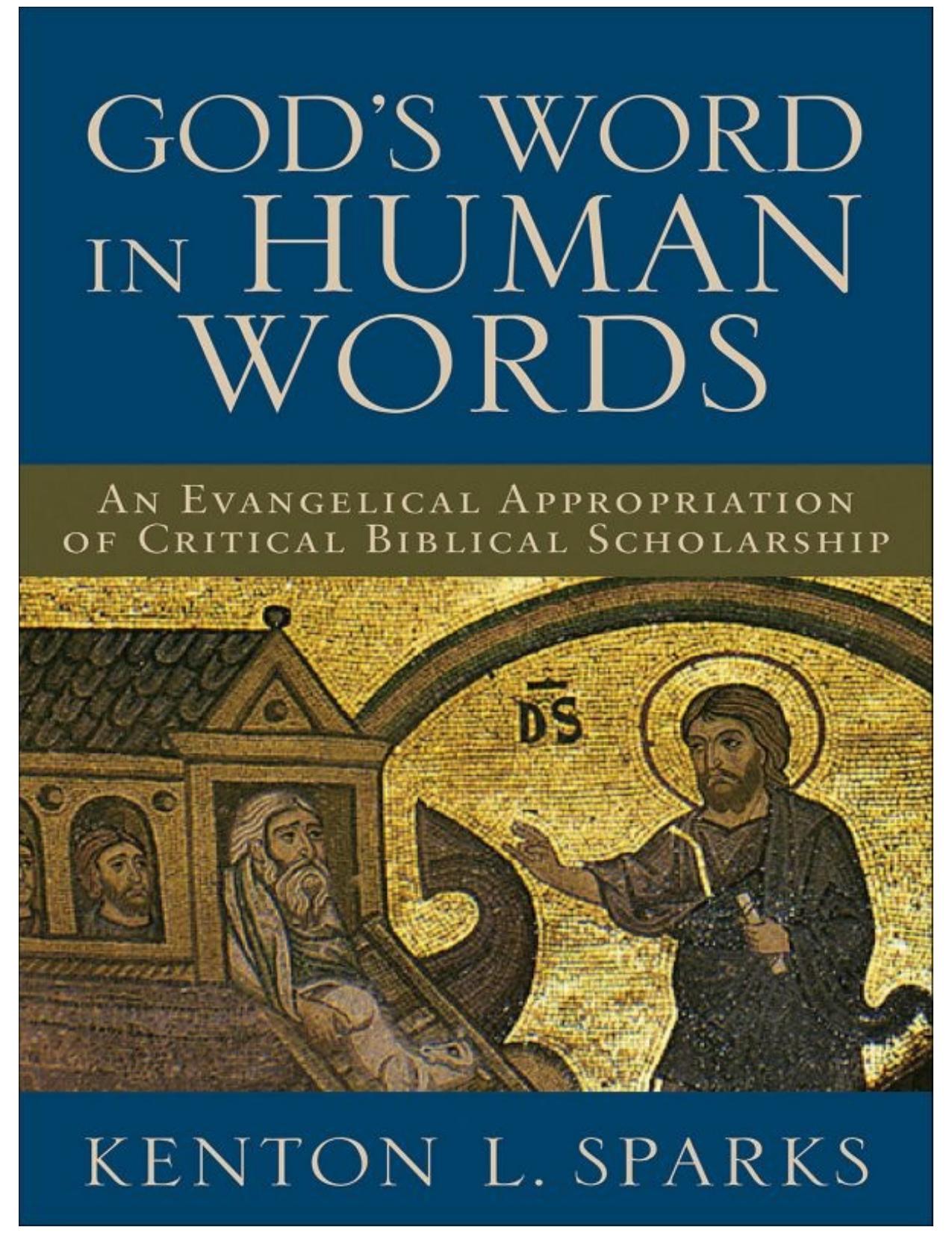God's Word in Human Words: An Evangelical Appropriation of Critical Biblical Scholarship by Sparks Kenton L

Author:Sparks, Kenton L. [Sparks, Kenton L.]
Language: eng
Format: epub, pdf
Publisher: Baker Publishing Group
Published: 2008-03-01T00:00:00+00:00
Jonah, the Parables of Jesus, and the Problem of Biblical Fiction
As we have seen, Enlightenment historicism has deeply influenced evangelical views of the Bible’s genre. One consequence of this influence is that conservative evangelicals, when making generic assessments of the Bible, are strongly biased in favor of historical narrative and deeply suspicious of fictional genres like allegories, myths, legends, fables, and folktales. For many evangelicals, any hint of fiction in Job, Jonah, Daniel, 1 Kings, Acts, or in any parts of the Pentateuch or Gospels, would be theologically threatening, not only for the biblical book itself but for the Bible as a whole. Even where this angst is not wholly present in evangelicals, they often display a theoretical preference for history over fiction. Consider, for example, these thoughts from an evangelical commentary on Jonah by Douglas Stuart:
One can appreciate the story of Jonah whether or not it represents actual historical events. . . . But the issue of historicity has implications beyond the formal didactic function of the narrative. If the events described in the book actually happened, the audience’s existential identification with the characters and circumstances is certainly heightened. People act more surely upon what they believe to be true in fact, than merely what they consider likely in a story.9
I will return to these comments by Stuart in a moment. But obviously his aversion to fiction brings evangelicalism and similar historicist movements into direct conflict with modern biblical criticism, since biblical criticism increasingly claims that some or many of the Bible’s “histories” are either poor histories or not historical at all. Is there a productive way to resolve the seemingly irresolvable conflict between evangelical historicism and modern biblical criticism?
First, it is undoubtedly true that modern critics are sometimes unduly skeptical of the Bible’s value as an historical document. Often their skepticism regards mainly the Bible’s miracles, but it sometimes goes well beyond this to a more extreme and almost rabid cynicism about everything the Bible narrates. It seems to me that the Christian faith cannot subsist in a recognizable, orthodox form if this skepticism is wholly embraced. Nevertheless, as we have seen already, it is very likely that the Bible contains more fictional literature than some evangelical readers can stomach. If we aim to take the Bible seriously as God’s Word, this leaves us with only one possible solution: perhaps fiction is a more valuable genre for conveying truth than conservative evangelicals normally suppose.
We have good biblical grounds for seeing theological value in fictional genres.10 Although there have been many debates among scholars about the life of Jesus, on this point it would seem that all New Testament scholars agree: Jesus’s favorite teaching genre was the parable. Or to put this more brashly, Jesus’s preferred genre for conveying truth was fiction. How does fiction convey truth? In order to explore this question in more detail, let us consider one of Jesus’s better-known parables, the story of the good Samaritan (Luke 10:30–35). Most readers will recall the tale, in which a helpless victim, robbed and beaten, was left to die on a deserted roadside.
Download
God's Word in Human Words: An Evangelical Appropriation of Critical Biblical Scholarship by Sparks Kenton L.pdf
This site does not store any files on its server. We only index and link to content provided by other sites. Please contact the content providers to delete copyright contents if any and email us, we'll remove relevant links or contents immediately.
| Exegesis & Hermeneutics | New Testament |
| Old Testament |
The Five People You Meet in Heaven by Mitch Albom(3548)
The Secret Power of Speaking God's Word by Joyce Meyer(3152)
Real Sex by Lauren F. Winner(3001)
Name Book, The: Over 10,000 Names--Their Meanings, Origins, and Spiritual Significance by Astoria Dorothy(2967)
The Holy Spirit by Billy Graham(2938)
0041152001443424520 .pdf by Unknown(2841)
How The Mind Works by Steven Pinker(2811)
ESV Study Bible by Crossway(2772)
Ancient Worlds by Michael Scott(2668)
Churchill by Paul Johnson(2574)
The Meaning of the Library by unknow(2558)
The ESV Study Bible by Crossway Bibles(2543)
The Gnostic Gospels by Pagels Elaine(2516)
MOSES THE EGYPTIAN by Jan Assmann(2410)
Jesus by Paul Johnson(2349)
City of Stairs by Robert Jackson Bennett(2337)
The Complete Dead Sea Scrolls in English (7th Edition) (Penguin Classics) by Geza Vermes(2269)
The Nativity by Geza Vermes(2221)
Ancient Near Eastern Thought and the Old Testament by John H. Walton(2217)
